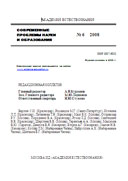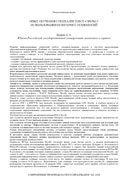PDF-версия статьи


|
Moreover once they have been teaching for some time and developed a set of routines that they can rely on, they start to depend on well-tried procedures so they don´t need to make much effort. The teachers don´t want new challenges (they had lots of them earlier and now want some peace) and get into a Cycle of Standing Still.
The cycle develops as the teacher begins to settle into routine and rely on tried and tested procedures. This is not in itself a bad thing. However, unquestioning acceptance of the way they teach their students may lead serious negative changes in their classrooms.
Exploratory teaching and learning is a very practical way of bringing the research into the classroom without adding significantly to teachers´´ workloads but contributing both to professional development and to theory-building within and across the profession.
Exploratory teaching is a potentially productive way of integrating research and teaching as it encourages the teachers to revise and change the existing practice. Exploratory teaching is being involved specifically to deal with problems teachers face in becoming researchers in their own classrooms. It differs from traditional academic research and has its characteristic fetchers.
Exploratory teaching:
- is a small-scale research by its nature;
- is started with ‘puzzles’ rather than ´problems´;
- is initiated and managed by the teachers according to their classroom needs;
- involves careful watching, listening, recording, asking. Reflecting, analyzing and interpreting;
- can be easily integrated into the normal process of teaching and learning;
- involves learners into research stimulating the development of the new formation of this age: ability to reflect;
- involves other teachers stimulating wider change in school;
- gives the opportunity to connect practice and theory;
- improves teachers´ professional self-esteem;
- brings teachers closer to learners and contributes to deeper understanding of conditions for effective teaching and learning.
Having all these advantages exploratory teaching comes across some major problems that teacher - researcher should be aware of: the time commitment, learning new skills, threats of self-esteem.
The result of all of this is that the elementary teachers have a great deal of responsibility for getting their class successfully through the necessary curriculum, so that the following year, the next teacher can do the same, building on the knowledge of the previous year. Should any child fall behind, through sickness, or any other reason, then every effort has to be made by the teacher to help that child catch up and understand the lessons that have been missed.
Bibliography:
1. Abbot, G., D. McKeating, J. Greenwood, and P. Wingard. 1981//The teaching of English as an international language. A practical guide. London: Collins.
2. Wright, T. 1997. //the roles of teachers and learners. Oxford: Oxford University Press.
ОПУБЛИКОВАНО
Shokhakhov I.S., Kalibekova L., Ormakhanova G., Zhekebai A., Shintaeva B. THE PROBLEM OF YOUNG FOREIGN LANGUAGE TEACHERS AT SCHOOL. // Современные проблемы науки и образования - 2014.-№6. (приложение "Педагогические науки"). - C. 13